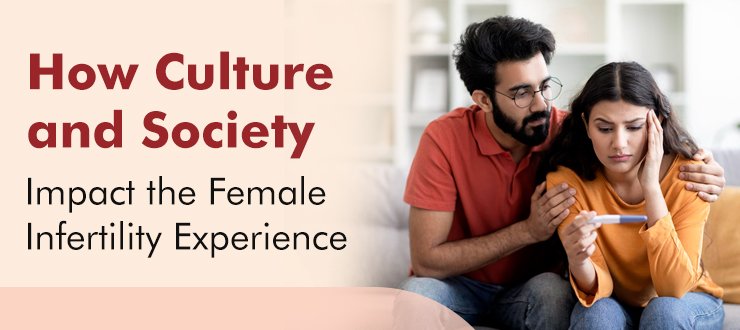
Infertility does not only exist in a vacuum, as it is associated with personal experience composed of emotions. Moreover, societal expectations, tradition, culture, and gender norms play a differentiating role in shaping how women cope with and experience infertility. As seen in several parts of the world, including India, it has been identified that infertility is not only a medical issue but also an emotional and social one, which is entangled with stigma and silence.
As per the report of the World Health Organization (WHO), approximately 1 in 6 people worldwide experience infertility at some point in their lives. Adding to this, in heterosexual couples, more than 50% of infertility cases are due to issues associated with females, yet societal narratives disproportionately place blame on women. Despite seeing the numbers, the emotional toll of infertility is highly intensified by cultural expectations and social norms, especially in the case of women.
In many parts of the country and different cultures, including several parts of India, a woman’s identity and worth are closely tied to her ability to bear children or give birth to a child. The pressure on women to give birth or conceive generally begins shortly after marriage, even today, in various states. This is a problematic situation for women if pregnancy doesn’t take place within the first year of marriage, as they are prone to scrutiny from communities and families.
A study published in the International Journal of Reproductive BioMedicine found that nearly 60% of Indian women undergoing infertility treatment felt social pressure from their in-laws or extended family.
In patriarchal societies, infertility is still treated as a topic of issues of we can say is a taboo for people, as women are not here to speak openly about it. Their silence affects them emotionally and mentally as it leads to depression, anxiety, and emotional isolation.
A 2022 study revealed that 40% of women dealing with infertility in South Asia experienced clinical levels of psychological distress, often without adequate mental health support.
If a couple is facing an issue of infertility, the blame game only starts with women, though in 30-40% of all cases, the male is accountable for infertility. Still, women are blamed frequently for not being able to conceive without addressing the root cause. Such misplaced balance leads to emotional trauma, strained marriages, and even abandonment or domestic abuse in extreme cases.
As per the analysis, before getting into many medical interventions, women facing infertility issues turn to traditional healers, religious rituals, or herbal remedies. Though cultural practices help in providing emotional comfort, delayed medical help can lead to diminished chances of successful treatment as fertility declines with age.
The good news is that awareness is growing and people are getting more educated. In many parts of the world, including India, people have started viewing infertility as a shared medical issue instead of ga endered or personal failing. Online support communities, media coverage, and celebrity openness about fertility struggles are helping to shift the narrative.
Adding to this, modern IVF centre such as Aevya IVF centre is a playing a great role in making women knowledgeable and empowering them with education, evidence-based treatments, and compassionate care. These centers are creating safe, stigma-free environments for women and couples to seek support without judgment.
Female infertility is not just a medical condition—it’s a social experience shaped by cultural norms, gender expectations, and societal narratives. By understanding and addressing these influences, we can foster greater empathy, reduce stigma, and provide more holistic support for women on their fertility journey.
At Aveya IVF Centre, we’re committed to supporting not only your physical health but also your emotional well-being—because we believe every woman deserves dignity, care, and a voice in her fertility story.